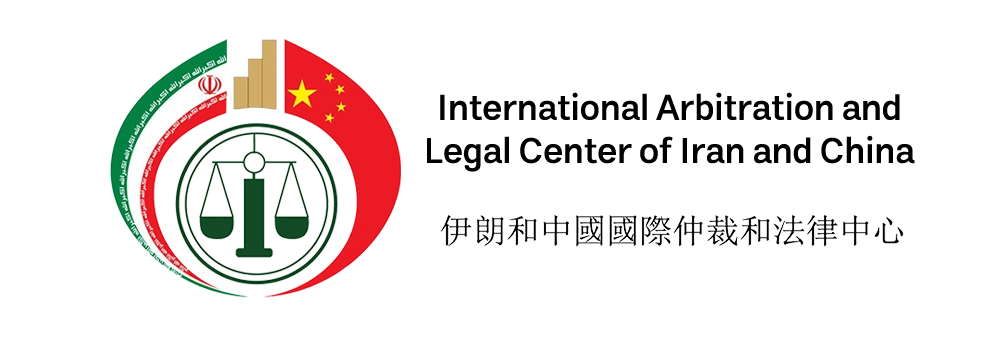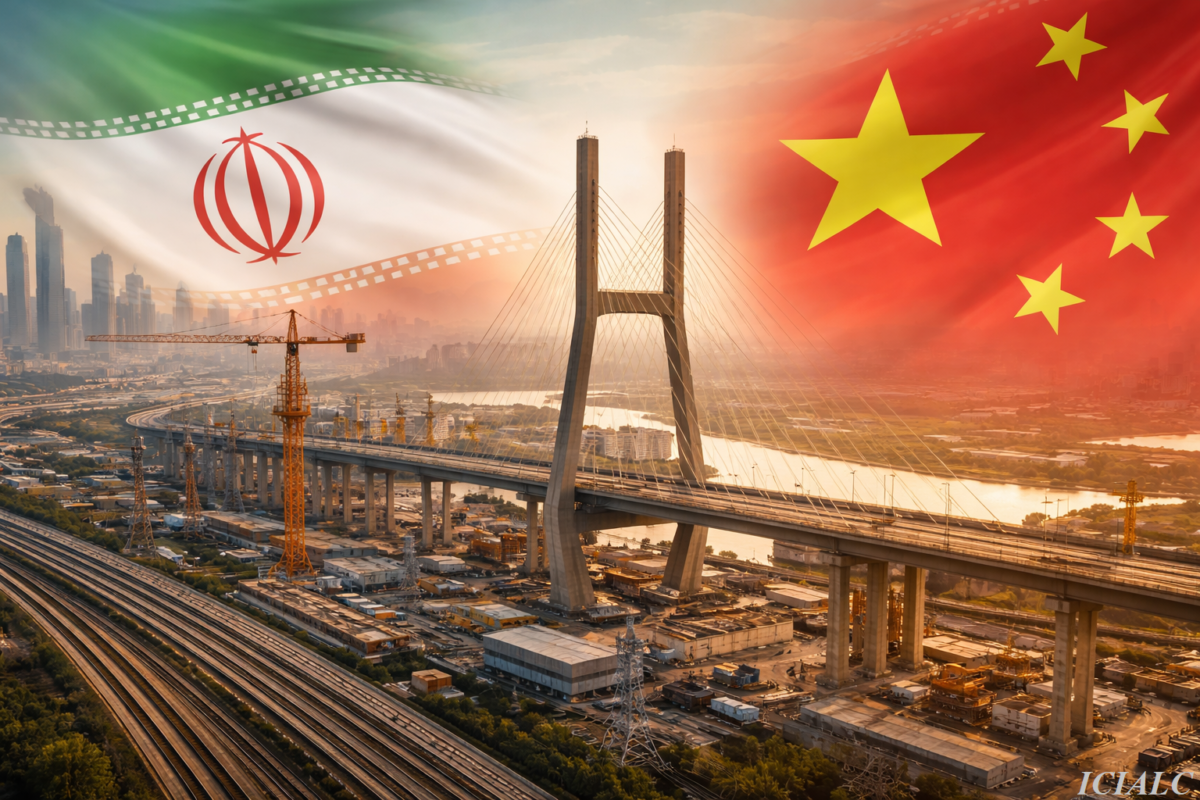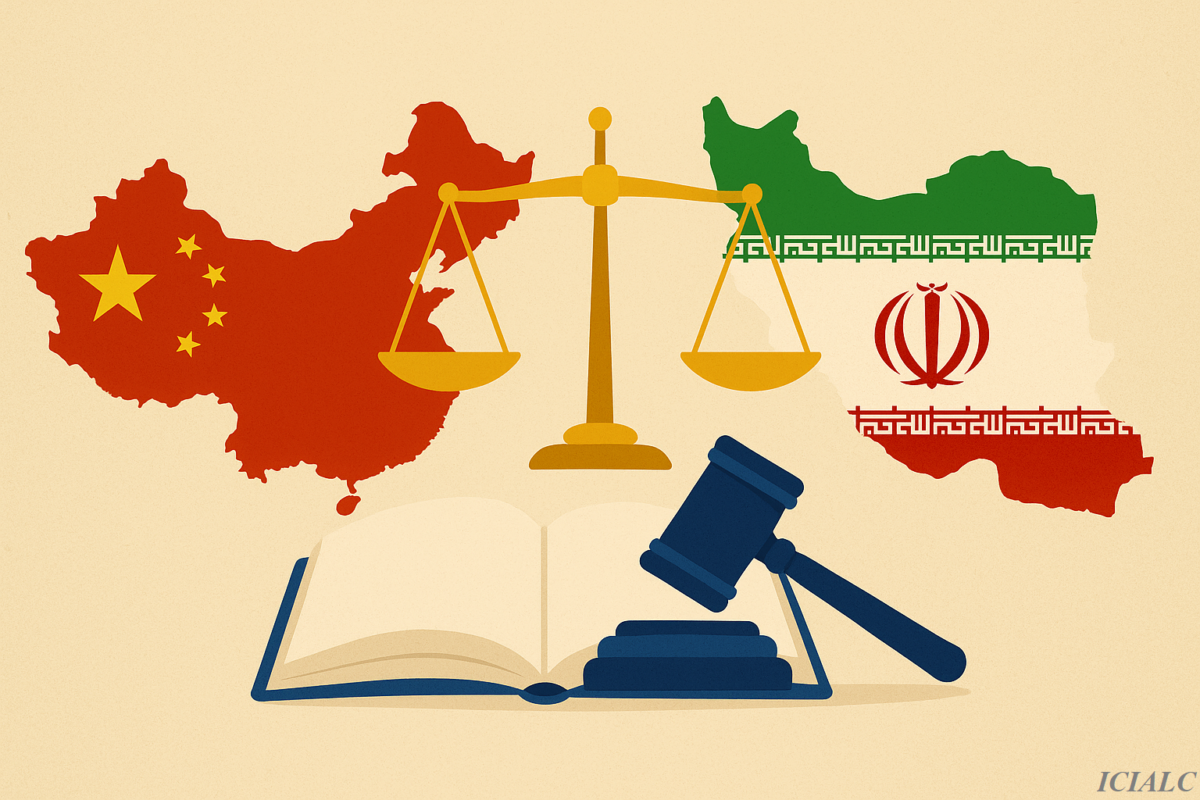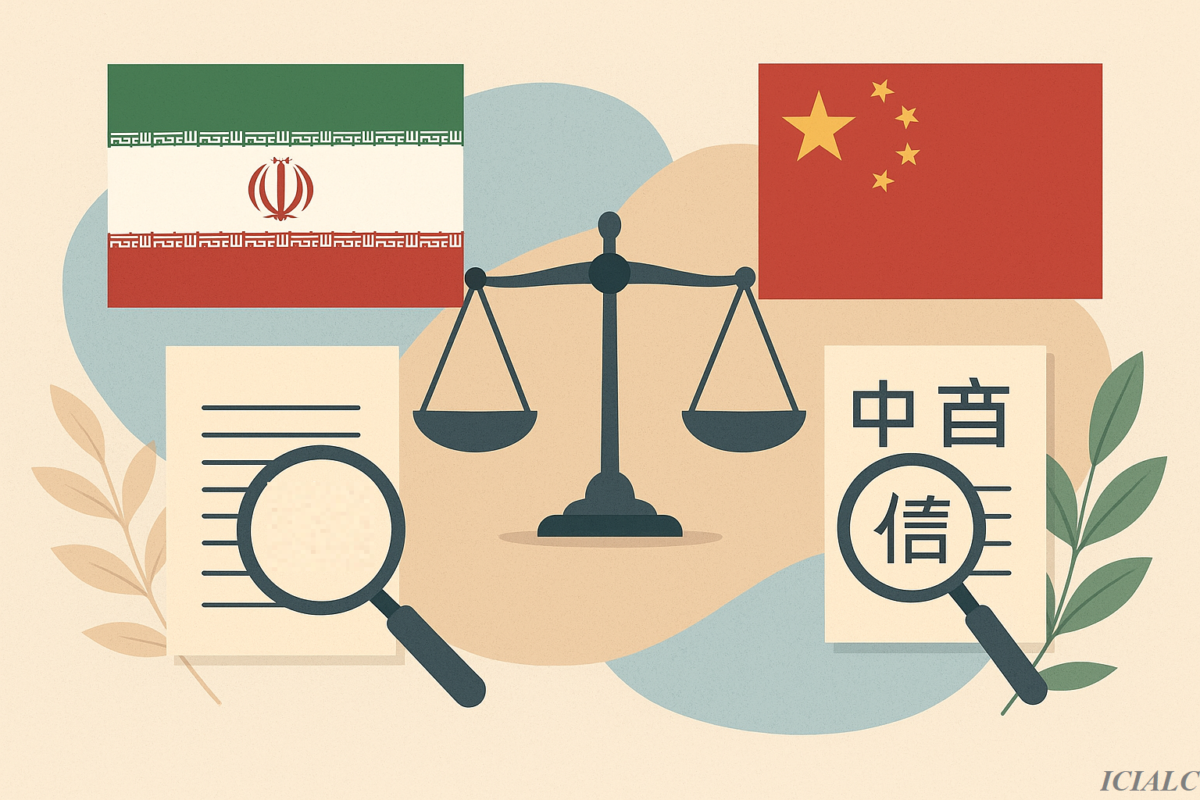With the rapid growth of international trade—especially with the active participation of countries like China in global markets—the need for institutions that can resolve commercial disputes in a specialized and impartial manner is increasingly being felt.
As the world’s second-largest economy, China has made significant investments in developing its legal infrastructure and arbitration institutions over the past decades. It has successfully established some of the most advanced international commercial arbitration centers.
Currently, institutions such as the China International Economic and Trade Arbitration Commission (CIETAC), the Shanghai International Arbitration Center (SHIAC), the Shenzhen Court of International Arbitration (SCIA), and the Beijing Arbitration Commission (BAC) are considered among China’s most reputable arbitration bodies. These centers have gained a strong reputation among economic actors, foreign investors, technology companies, and multinational corporations.
By utilizing expert arbitrators, updated regulations, multilingual services, and digital infrastructure, these institutions provide a reliable and efficient environment for resolving commercial disputes. This article will offer a closer look at each of these centers and explore the potential benefits of including their arbitration services in international contracts involving Chinese parties.
Why is arbitration in China important?
In the world of international trade, using arbitration institutions has become essential. For Iranian traders collaborating with Chinese companies, having a clear dispute resolution mechanism in commercial contracts is crucial. Arbitration, as an alternative to court litigation, has gained a prominent position in international contracts due to features like speed, confidentiality, specialization, and ease of enforcement.
China, as one of the world’s largest economies and a key trading partner of Iran, hosts credible international arbitration institutions that businesses can rely on. In recent years, with growing trade between Iran and China, the need to become familiar with these institutions has become more pressing.
What are the characteristics of a reputable arbitration institution?
Choosing the right arbitration institution plays a vital role in the success of the dispute resolution process. A reputable arbitration center should have the following features:
- Independence and impartiality: It must be free from government or special interest influence, and its arbitrators should act impartially.
- Efficiency and reasonable costs: The arbitration process should be neither time-consuming nor overly expensive. Speed and clear timelines are important.
- Expertise in commercial disputes: The institution should have experience handling international business cases.
- International enforceability of awards: The final awards must be enforceable in other countries, ideally under the 1958 New York Convention.
- Clear rules and transparent procedures: The institution’s internal regulations should be accessible, precise, and transparent to the parties involved.
China’s Most Important Arbitration Institutions
China is home to several reputable arbitration bodies recognized internationally. Below are introductions to the most important ones:
China International Economic and Trade Arbitration Commission (CIETAC)
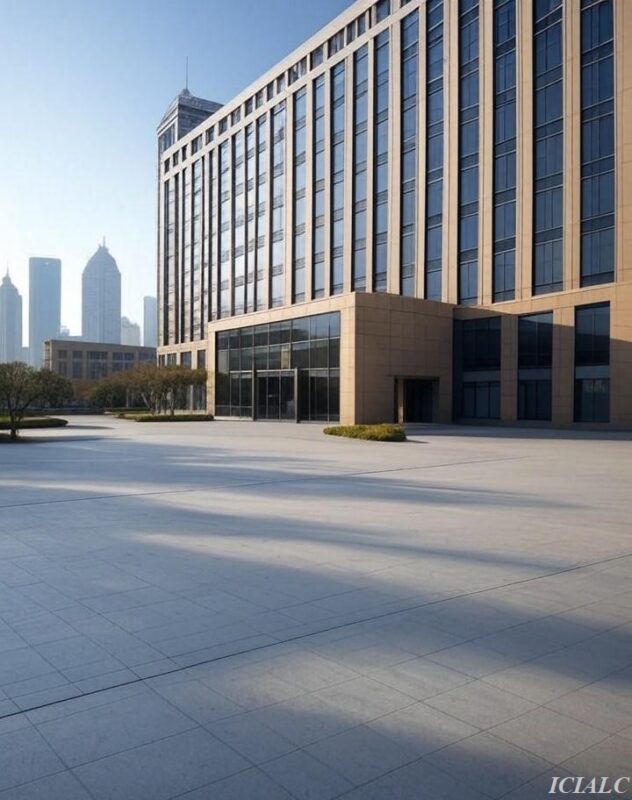
CIETAC is one of the oldest and most respected commercial arbitration institutions in China. It was established in 1956 and is now recognized as the leading arbitration authority for international contracts involving Chinese parties. Operating under the China Council for the Promotion of International Trade (CCPIT), CIETAC plays a vital role in resolving disputes between domestic and foreign companies.
CIETAC ranks highly in terms of case volume and international recognition of its awards. For companies doing business with China, CIETAC is a trusted and reputable choice for arbitration clauses in commercial contracts.
CIETAC’s Scope of Activity Includes:
- International sale of goods contracts
- Joint venture agreements
- Technology transfer contracts
- Construction and infrastructure projects
- Maritime and land transportation
- Financial and banking services disputes
Key Advantages of CIETAC Arbitration:
✅ Comprehensive and flexible rules:
CIETAC’s updated arbitration rules are aligned with international standards while addressing the specific needs of Chinese parties.
✅ Multilingual proceedings:
CIETAC proceedings are typically conducted in Chinese or English. However, parties may agree on other languages, making it accessible to foreign companies.
✅ Extensive roster of domestic and international arbitrators:
CIETAC includes experts with academic and practical experience in various sectors, many of whom are internationally recognized, enhancing the quality of proceedings and boosting confidence.
✅ Widespread international enforceability of awards:
Thanks to China’s accession to the 1958 New York Convention, CIETAC’s awards are enforceable in most countries.
✅ Flexible choice of arbitration location:
CIETAC has branches in Beijing, Shanghai, Shenzhen, Chongqing, Xi’an, Tianjin, and Hong Kong. Parties may choose among these cities or even request arbitration in a third country.
Why is CIETAC Important for Iranian Traders?
With the expansion of economic ties between Iran and China—especially in energy, transportation, construction, and technical services—familiarity with reliable arbitration institutions like CIETAC is crucial for Iranian businesspeople. Including CIETAC in arbitration clauses, particularly in dealings with large Chinese or state-owned enterprises, can enhance mutual trust and ease contract enforcement.
Shanghai International Arbitration Center (SHIAC)
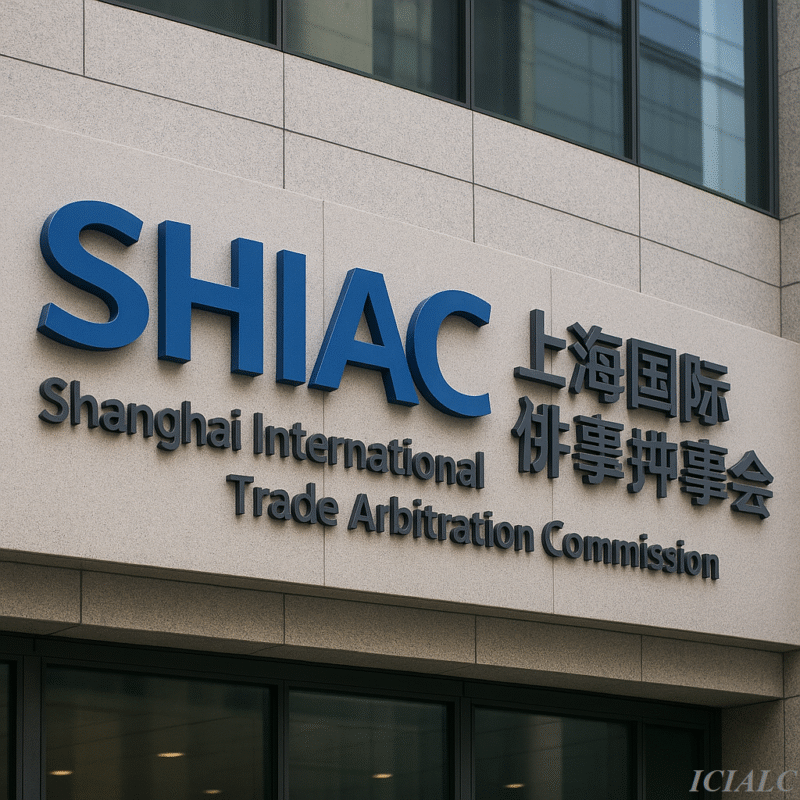
SHIAC is a prominent and reputable arbitration institution in the People’s Republic of China. It began operating independently in 2013 after separating from CIETAC. Drawing on decades of experience in international arbitration, a modern management structure, and its strategic location in China’s commercial hub, SHIAC has earned a significant position among regional and global arbitration institutions.
SHIAC focuses on enhancing its professional capacity in international trade disputes—especially in maritime transportation, port trade, finance, logistics, and import-export—attracting the trust of international business professionals.
Key Features of SHIAC:
✅ Expertise in maritime and port-related disputes:
Given Shanghai’s status as one of the world’s busiest ports, SHIAC specializes in disputes concerning marine transport, bills of lading, marine insurance, charter party agreements, port operations, and logistics services.
✅ Strong relationships with international bodies:
SHIAC collaborates with domestic and international chambers of commerce, reputable arbitration centers, and specialized legal organizations. These connections raise SHIAC’s academic and practical standards and make the arbitration process smoother for foreign parties.
✅ Modern infrastructure and professional environment:
With advanced technical facilities, video conferencing rooms, electronic case tracking systems, and standard physical spaces, SHIAC ensures a professional, transparent, and orderly arbitration experience.
✅ Access to international arbitrators:
To ensure fairness and impartiality, SHIAC allows parties to choose from a diverse list of domestic and international arbitrators, fostering trust and alleviating foreign investors’ concerns.
Why is SHIAC important for Iranian Traders?
As trade between Iran and China continues to grow—and as more Iranian companies engage in international contracts involving imports, exports, logistics, and technical services in China—choosing a professional and trustworthy arbitration institution becomes crucial. SHIAC, due to its advantageous location in Shanghai, China’s financial capital, and its specialization in global trade and logistics disputes, can be a highly suitable and effective option for inclusion in the arbitration clauses of commercial contracts with Chinese parties.
Beijing Arbitration Commission (BAC)
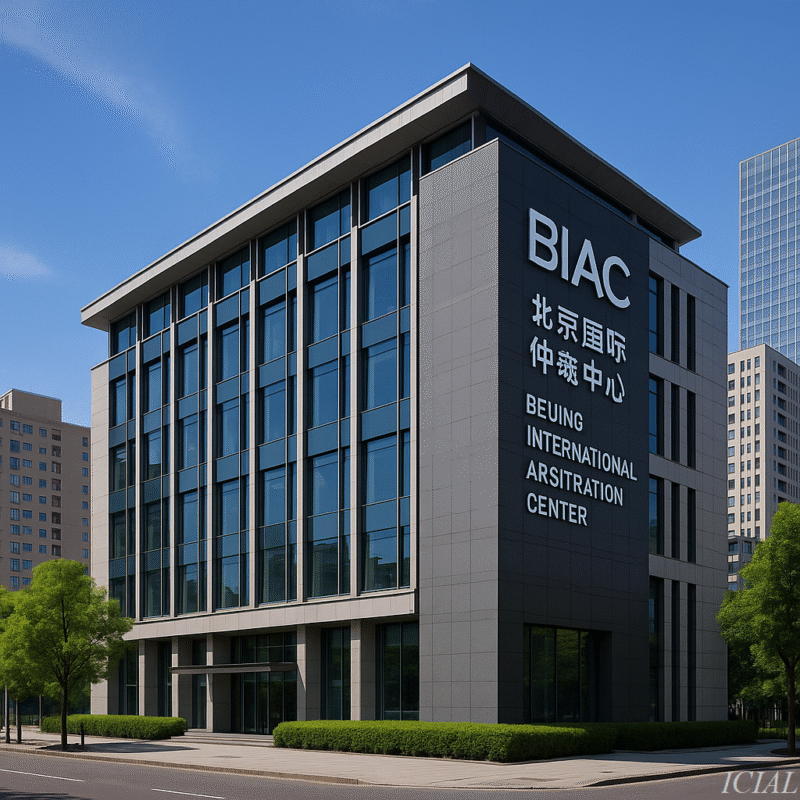
The Beijing Arbitration Commission, also known as the Beijing International Arbitration Center, is one of the leading, independent, and reputable arbitration institutions in China. Since its establishment in 1995 with the aim of providing effective, transparent, and professional arbitration services, it has become a prominent forum for resolving commercial disputes both nationally and internationally.
BAC has established itself as a trusted venue for domestic and foreign traders by leveraging a combination of local and international legal expertise, especially in areas such as information technology, investment, and construction.
Areas of Specialization at BAC
BAC focuses particularly on handling modern and specialized disputes, notably in:
- Information Technology, Data, Internet, and Artificial Intelligence
Disputes related to big data, online platforms, e-commerce, and digital intellectual property. - Construction and Engineering Contracts
Building projects, EPC (Engineering, Procurement, Construction), design and build contracts, and infrastructure projects. - Joint Ventures
Disputes arising from multinational collaborations, joint ownership, share transfers, and company management. - Financial Services, Banking, and Insurance
Key Features of BAC
✅ Institutional Independence:
Unlike some government-affiliated institutions, BAC operates independently and is not under the direct supervision of any government or commercial body. This enhances the neutrality and final credibility of its arbitration awards.
✅ Transparency in Arbitration Procedures:
BAC conducts its proceedings in line with the principle of transparency. It publishes annual analytical and statistical reports containing detailed information on the types of disputes, hearing procedures, arbitration duration, and issued awards.
✅ Modern Arbitrator Selection System:
Arbitrators at BAC are selected based on their expertise, experience, and technical and language abilities. The option to select foreign and English-speaking arbitrators is a major advantage.
✅ Advanced Digital Infrastructure:
BAC uses online platforms for case filing, document exchange, and virtual hearings. This is especially practical and cost-effective for foreign and international companies.
✅ International Recognition of Awards:
China is a member of the 1958 New York Convention, and arbitration awards issued by BAC are recognized and enforceable in many countries, including European, Asian, and Middle Eastern nations.
Importance of BAC for Iranian Companies and Traders
Given the increasing construction, technology, and joint investment projects between Iran and China, BAC is highly recommended as a preferred arbitration forum to include in commercial contracts with Chinese companies.
Features such as complete independence, transparent procedures, expertise in technology-related disputes, and easy access to international arbitrators make BAC a smart choice for Iranian traders and legal professionals.
Shenzhen Court of International Arbitration (SCIA)
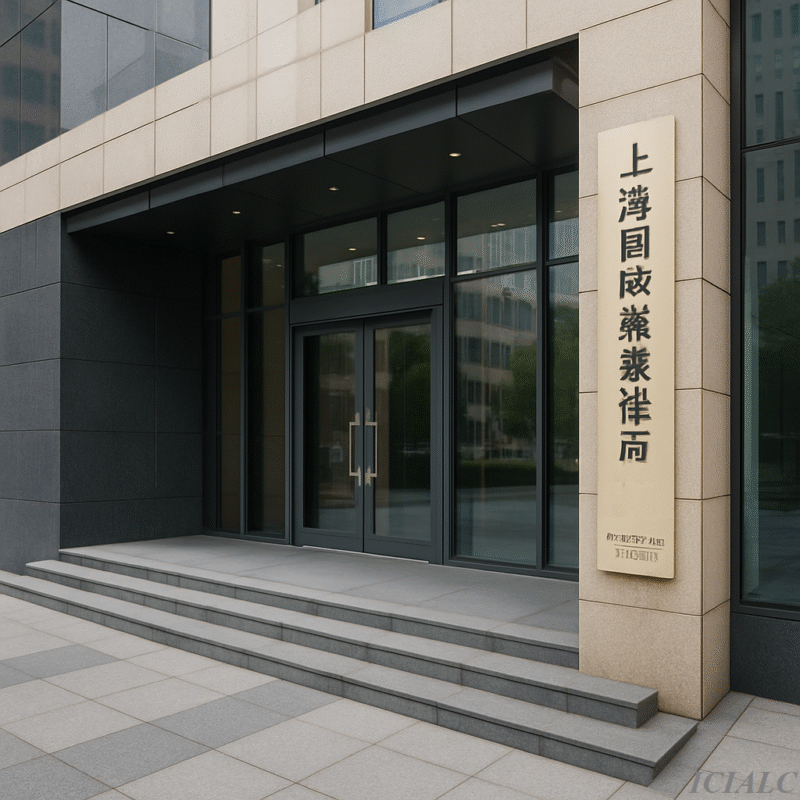
The Shenzhen Court of International Arbitration (SCIA), formerly known as the South China Sub-Commission of CIETAC, became fully independent in 2012 and has since developed into one of the most advanced, innovative, and reputable arbitration institutions in China. Located in the Shenzhen Special Economic Zone, SCIA plays a key role in resolving commercial disputes related to technology, foreign investment, and cross-border trade.
SCIA’s Focus Areas
SCIA, with its emphasis on technology development and regional trade, has become a top choice for international companies and startups in the following areas:
- Trade in the Greater Bay Area:
Covering Guangdong Province, Hong Kong, and Macau, SCIA is highly active in regional trade and joint investment projects in this area. - Technology-Focused Companies:
Specialized handling of disputes involving tech companies, startups, digital platforms, and online businesses. - Suitable for Foreign Investors:
Deals with disputes arising from foreign investments, technology transfers, intellectual property, and international collaboration contracts.
Key Advantages of SCIA for International Arbitration
✅ Flexible Arbitration Methods:
SCIA is one of the few institutions in China that allows a mix of traditional arbitration, expedited arbitration, mediation, and modern digital methods.
✅ Advanced Online Arbitration Infrastructure:
Fully equipped to hold remote (online) hearings, submit documents electronically, file cases remotely, and conduct hybrid hearings—especially useful in the post-COVID era.
✅ Multilingual and International Arbitration Environment:
SCIA offers arbitration services in Chinese, English, and occasionally French, making it accessible and reliable for foreign parties.
✅ Advanced and Independent Arbitration System:
SCIA operates completely independently and has its own up-to-date and transparent arbitration rules aligned with global standards of international commercial arbitration.
✅ Wide Network of International Arbitrators:
Allows selection of expert arbitrators from various countries with strong technical and legal knowledge in technology, digital trade, and investment.
Why Is SCIA a Suitable Choice for Startups and Tech Companies?
With the rapid growth of technology-based and digital companies in China and globally, institutions like SCIA that can handle disputes swiftly, effectively, and multilingually have become increasingly important.
As Shenzhen is known as China’s Silicon Valley, the presence of an international arbitration center in this city enables technology businesses to resolve disputes in a specialized, neutral, and international setting.
Tips for Iranian Traders When Choosing Arbitration Institutions in China
Before signing any contract with a Chinese counterpart, the following arbitration considerations should be included:
- Inclusion of an Arbitration Clause:
Specify the arbitration institution (e.g., CIETAC), the place of arbitration (e.g., Beijing or Shanghai), the arbitration language (preferably English or Chinese), and the governing law (e.g., Chinese law or a neutral law like Swiss law). - Use of Legal Advisors Specialized in International Arbitration:
For contract drafting and negotiations, and for understanding legal differences between Iran and China. - Official Translation of All Arbitration Documents:
Documents must be translated into the official language of the arbitration institution (usually English or Chinese). - Ensuring Enforceability of the Award in Iran or Third Countries:
As both Iran and China are members of the New York Convention, arbitration awards issued in China are enforceable in Iran, provided proper procedures are followed. - Consider Multi-Tiered Dispute Resolution:
Include provisions for initial negotiations, mediation, and then arbitration for amicable resolution of disputes.
Conclusion and Final Recommendations
Trade with China offers vast opportunities for Iranian businesses, but also brings the risk of commercial disputes. To prevent potential losses and safeguard their rights, traders must carefully choose a reputable arbitration institution and draft detailed arbitration clauses.
Institutions such as CIETAC, SHIAC, BAC, and SCIA are reliable arbitration bodies in China that ensure legal security for traders through their international structure, expert arbitrators, and professional processes.
All business professionals are advised to seek legal counsel before entering any major agreement with Chinese partners. When properly designed and anticipated, arbitration can be an effective tool for protecting commercial interests internationally.
Our colleagues at the Iran-China International Legal and Arbitration Center can be a reliable partner for you in this journey.
